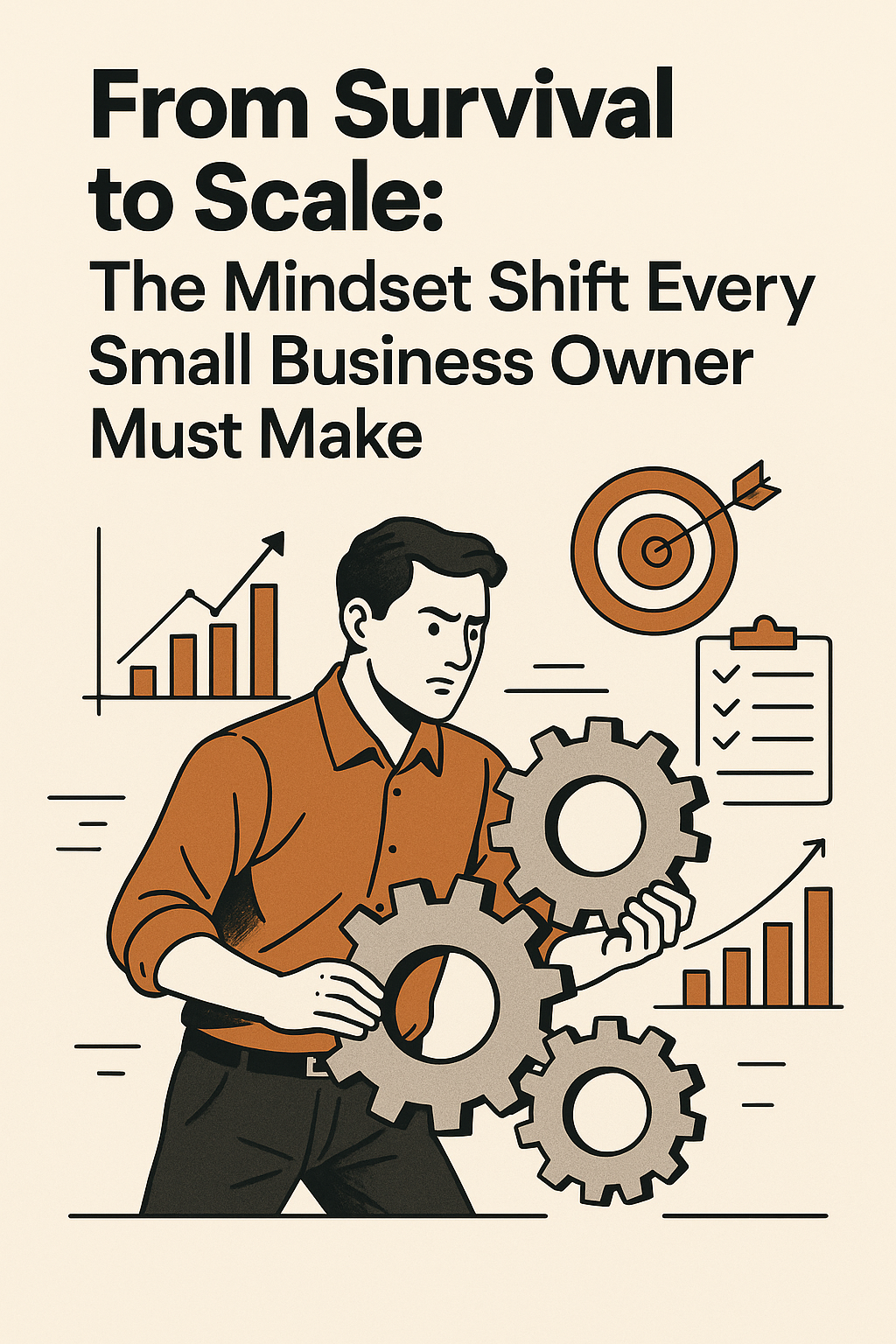05:32:08 pm 06/18/2025
Viewed: 11762
From Survival to Scale: The Mindset Shift Every Small Business Owner Must Make
In the early days, it’s all on you—the founder. You solve every problem, approve every decision, and hold the entire operation together through late nights, stubborn grit, and the sheer will to see your vision come to life. Your team trusts you because you’re relentless. The business exists because you push it forward.
Starting a business is a heroic act.
In the early days, it’s all on you—the founder. You solve every problem, approve every decision, and hold the entire operation together through late nights, stubborn grit, and the sheer will to see your vision come to life. Your team trusts you because you’re relentless. The business exists because you push it forward.
But here’s the hard truth: that mindset won’t take you to the next level.
Why the Founder’s Grind Doesn’t Scale
What gets you to $100K in revenue won’t get you to $1M. What makes a strong solo founder won’t make a strong CEO.
If you’re still answering every email, overseeing every sale, troubleshooting every issue—congratulations, you don’t have a business. You have a very demanding job.
That founder-as-hero mindset is necessary in the beginning. But if it becomes permanent, it becomes the bottleneck.
This is not just anecdotal. Research from the Harvard Business Review shows that most small businesses plateau because founders fail to transition from operator to leader (HBR, 2018). Growth stalls not because of lack of opportunity, but because of the founder’s limited capacity.
From Operator to Architect
To scale sustainably, you must undergo a fundamental transformation:
From executor to system builder
From micromanager to team leader
From firefighting to foresight
This requires letting go of control. Not all at once—but intentionally. Start by designing systems that replace your involvement, not replicate it.
“If you can’t be replaced, you can’t be promoted.” — Michael Gerber, The E-Myth Revisited
What Scaling Leaders Do Differently
Top business leaders don’t just work in their business—they work on it. They install processes that deliver results predictably and empower their teams to solve problems autonomously.
Here’s what that looks like in practice:
🔁 Systemize success
Take what already works and document it. Create SOPs (standard operating procedures), automate repetitive tasks, and reduce decision fatigue.
🧠 Empower your team
Delegate outcomes, not just tasks. Give your people the tools and authority to make smart decisions without your constant input.
🚫 Prevent bottlenecks before they start
Use proactive planning, clear KPIs, and feedback loops to anticipate problems instead of reacting to them.
🕰 Reclaim your time, energy, and clarity
The goal isn’t just freedom—it’s focus. Time to think strategically, innovate, and lead your company with vision.
Results That Follow
Business leaders who implement these principles regularly report:
30%–130% growth in 12 months (without doubling their workload)
Reduced operational dependency on the founder
Higher team morale and productivity
Renewed passion for their business
The ability to take real vacations
These aren’t just theoretical outcomes. They reflect the lived experiences of founders who make the transition from hustler to architect.
No video exists.





Comments